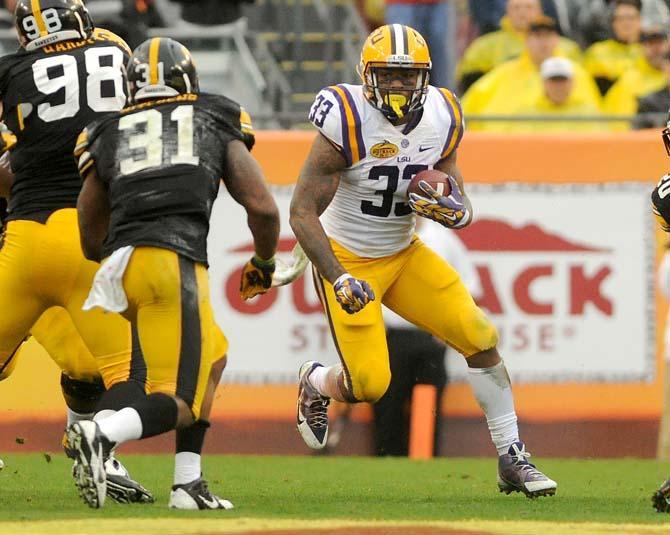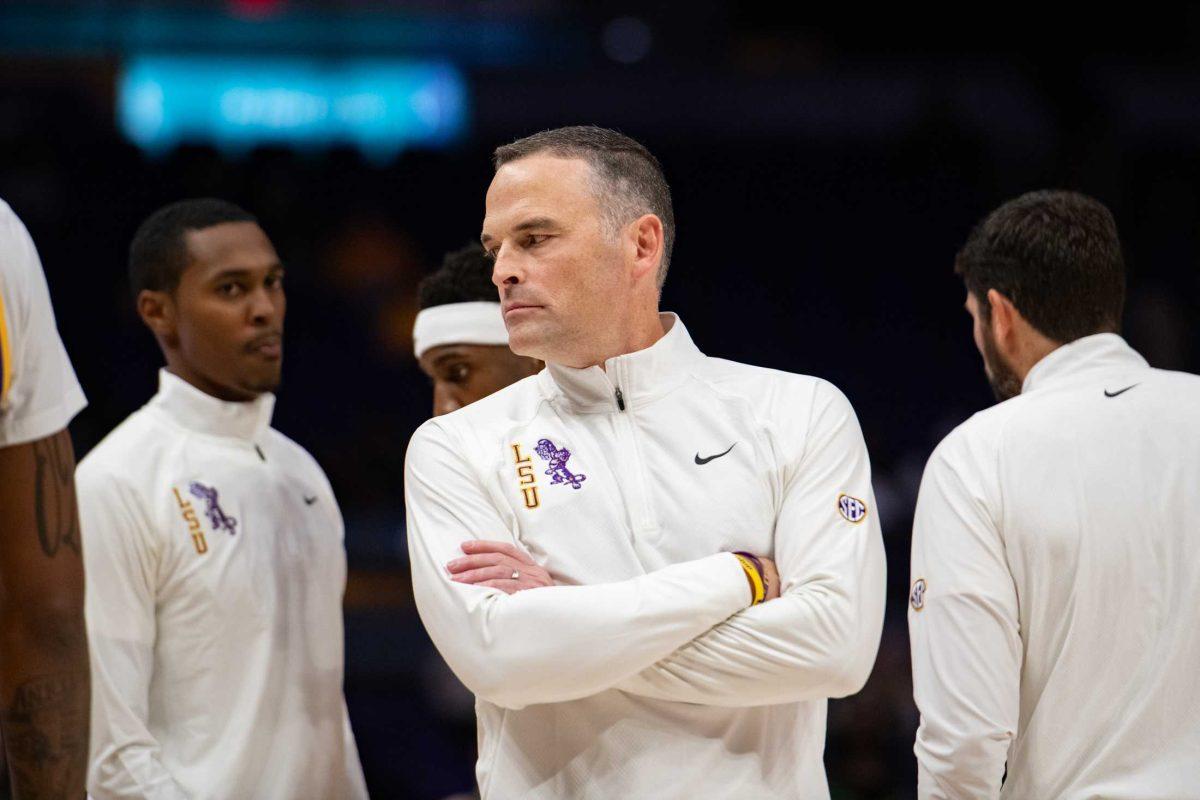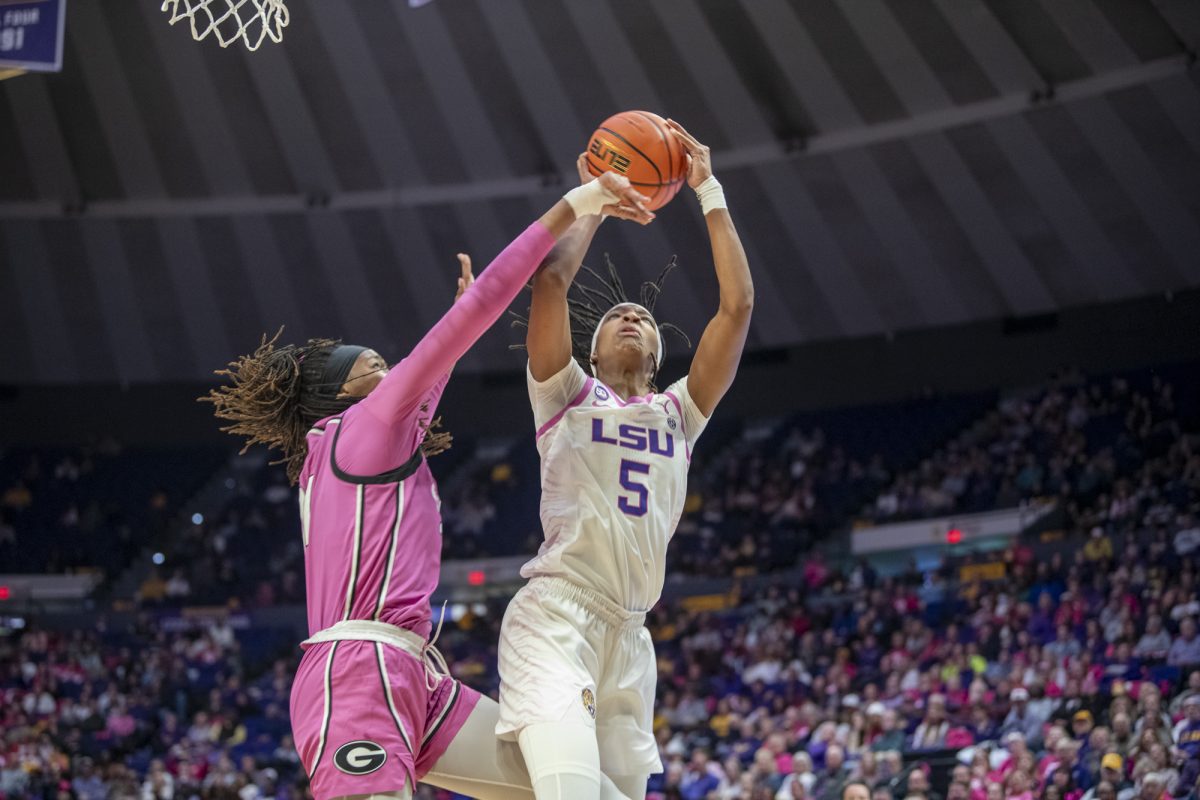Despite numerous reports surfacing last week that LSU running back Jeremy Hill was leaning toward returning to school, his decision Monday to declare for the NFL Draft should surprise no one.
Hill has the look of an NFL runner and nothing left to prove at the college level. A sense of loyalty to the school that gave him so many chances may have pulled hard at him to stay, but there are too many reasons for him to forgo his junior season and turn pro.
Taking on another collegiate season would jeopardize the payday Hill has coming to him. Whether a serious injury on the field or a third run-in with the law off of it, one misstep could kill Hill’s NFL career before it begins.
Even if he had a problem-free junior season, the benefits wouldn’t outweigh the risk.
Because of the physical toll of the position, running backs have the shortest careers and should turn pro as early as possible to make money while they can. Perennial pro-bowlers can lose a step and are out of the league before they even realize what happened.
If Hill is successful, leaving early could enable him to sign his second and maybe third contract before his body breaks down.
It’s no mystery why Hill opted to leave. What’s truly surprising was the overall public reaction to his decision.
Across Twitter, there seemed to be a collective shrug of the shoulders to the loss of a 1,400-yard rusher and his 16 touchdowns.
Some urged caution, but most seemed ready to simply pencil in incoming freshman Leonard Fournette as LSU’s starting back, expecting the same level of production the Tigers got from Hill.
Fournette is the consensus No. 1 recruit in the nation and the crown jewel of LSU’s recruiting class. Recruiting analysts from around the country have pegged the St. Augustine product as “can’t miss,” and according to ESPN, he may be the best running back to come out of high school since Adrian Peterson.
Fournette could live up to all the hype and end up being the best back to ever come through Baton Rouge. But Hill is as good of a runner as the Tigers have had in a while, and to expect Fournette to be that good the second he steps on campus is ambitious, to say the least.
Consider that Hill played in a prolific offense that kept defenses from constantly loading the box because it had Zach Mettenberger at quarterback and Odell Beckham Jr. and Jarvis Landry on the outside. With all three moving on, Fournette won’t enjoy that same luxury.
For Fournette to match Hill’s productivity, he’d actually have to shoulder much more of the load because he will be surrounded by other unproven players. All indications suggest he has the talent to do it, but again, that’s a lot to ask from an 18-year-old.
Remember that Fournette isn’t the first ultra-hyped recruit to come onboard at LSU. Russell Shepard and Anthony Johnson were both consensus top-five national recruits, and neither set the world on fire during their first seasons at LSU.
That doesn’t mean Fournette won’t, and it’s not meant as a shot at the two who didn’t. It’s just a cautionary tale against heaping accolades and pressure on guys who have never played a down of collegiate football.
Fournette will most likely be awesome in his time at LSU, but that doesn’t mean he won’t feel some growing pains during year one.
And it certainly doesn’t mean Hill’s departure should be written off as a net-zero loss because of Fournette’s arrival.
Opinion: Hill’s departure is costly, but not surprising
By James Moran
January 14, 2014
LSU sophomore running back Jeremy Hill (33) attempts to run for a first down Wednesday, Jan. 1, 2014 during the Tigers’ 21-14 victory against the Iowa Hawkeyes in the Outback Bowl at Raymond James Stadium in Tampa, Florida.
More to Discover








